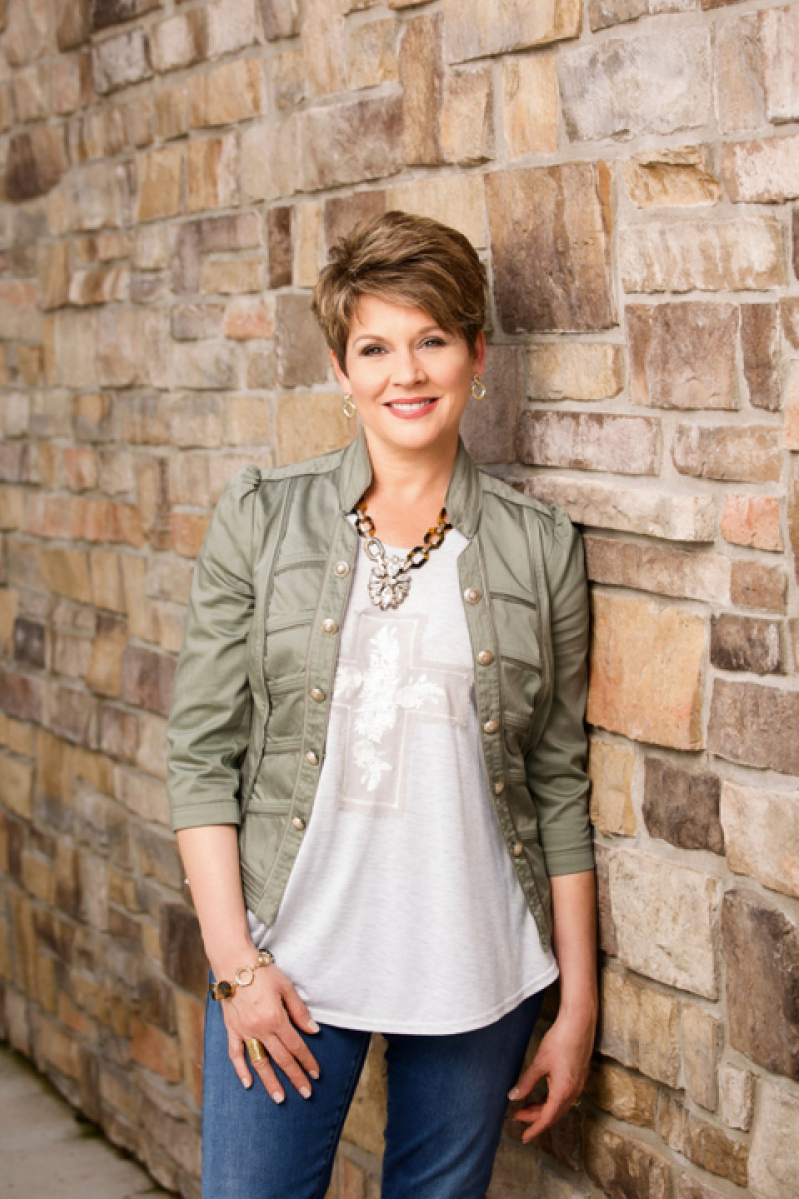
For many of us, self-criticism is just a way of life. On a daily basis, we tell ourselves things we would never say to anyone else: "Why am I such an idiot? Why can't I do anything right? This is all my fault. I'm not important."
Before long, such negative inner dialogue becomes so common, we don't even notice how it tears down our self-worth, our self-esteem, and our self-confidence, leaving us crippled with doubt and insecurity.
World-renowned speaker and Christian author Jennifer Rothschild wants to help change this all-too-common, deeply damaging behavior.
In her book, Me, Myself & Lies: What to Say When You Talk to Yourself, Rothschild uses her own experience to discuss how self-talk shapes the way we think and influences our emotions and decisions. Using Biblical tools, she shares how to overcome a lifetime of damaging self-talk by practicing godly and biblical soul-talk.
"The way I spoke to myself was not bringing me the life that I longed for, or the life that God intended for me," Rothschild told The Gospel Herald of why she wrote Me, Myself & Lies. "It came to a climax one morning when I woke up, and before my feet had hit the ground, I was just pelted by these condemning statements, like, 'You're not being a good mom; you shouldn't have said that to your husband; you can't get your act together.' Just all these destructive, unkind things."
After spending time in prayer that morning, the author felt the Lord say to her, "Until you learn to control your thoughts, your thoughts are going to control you."
"The best way to begin to do this is to notice and monitor what you say to yourself," Rothschild told GH. "That's how the Lord began this journey with me and really began to change my thinking. It's changed who I am and how I live."
Like most women, Rothschild's battle with self-criticism began at a young age. At just 15 years old, she became legally blind, exacerbating her feelings of insecurity and insignificance.
"Blindness is all about limitations and what you can't do," she said. "As I was growing into adulthood, which is when we're supposed to become independent, I had to grow into becoming dependent. My sense of self took a real hit, and I do believe that the enemy in my soul took advantage of that and I just went along with him."
Negative self-talk seemingly affects women in particular, Rothschild contended, because women are intuitive, self-aware, and designed be nurturers.
"We are very in-tune with our feelings and have a desire to please," she explained. "But, we live in a world where women are pressured to look a certain way, to achieve a certain, often unattainable, status. We are wired in such a way that we are quick to self-slander and recognize our deficits more than our strengths. Unfortunately, when we think we're the ones who have to be enough and do enough, we're not resting in the fact that God is enough for us and has done enough for us. That is one of the ultimate lies women fall for."
These lies, she explained, stem from devil -- the original "Father of Lies".
"The enemy whispers lies in our ears all the time and often uses others as his mouthpiece," she said. "There's just so much that we're exposed to that is untrue, and we tend to believe that every feeling we have is a fact, and that's simply not the truth. Lies originate from the devil, but we can easily believe them, take them in, and start speaking them to ourselves."
She added, "Ultimately, because we are redeemed, because Jesus is the Prince of Peace and we have access to the truth through His Word, we can begin to recognize those lies, reject them, and speak the truth to our souls instead."
In her book, Rothschild shares the "The Three R's" to replacing the lies of the devil with healthy self-talk: recognize, refuse, and replace.
"First, you must recognize what you're saying to yourself," she explained. "Is it kind? If you wouldn't talk that way to someone else, you shouldn't talk that way to yourself."
Second, refuse: "If you're telling yourself lies or being unkind you need to refuse that," Rothschild said. "The Bible tell us to hold every thought captive and make it obedient to Christ. Don't let that lie inside, because once it gets inside, that's when you wardrobe your life with it. Refuse entry."
Finally, replace that lie with a truth: "The truth is, you are the workmanship of Christ," she continued. "So then, I put that truth in my thought closet and I wardrobe my life with that truth. Then, I can be confident in Christ."
Once we have, with Christ's help, cultivated kindness within ourselves, we are able to genuinely extend love and understanding to others.
"When we make God the first and best thought we have and speak His truth to ourselves, we will be more kind and empathetic to others," Rothschild said. "The truth has the power to set you free; free from lies; from insecurity; from a lack of confidence; from condemnation. Through Christ, we are free to be loved and accepted."
To learn more about Me, Myself & Lies: What to Say When You Talk to Yourself, click here.







